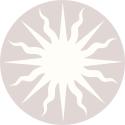Click here if you don’t see subscription options
What is this? A new teaching with authority!



Time Has Come
Congratulations on the issue that focused on women in the church (11/27). The contributors provided an excellent overview of both the contributions of women to the life of the church and an exploration of issues that remain unresolved. It was interesting to read in the editorial your comment that the restoration of the diaconate for women is a possible first step in responding to the call of women for greater participation. In 1977, following the 1976 Vatican Declaration on the Question of the Admission of Women to the Ministerial Priesthood, the National Council of Catholic Women responded with a statement declaring itself in harmony with the teaching church, yet calling for an examination of the feasibility of establishing the diaconate for women, a question the Declaration’ left open. Perhaps after more than 20 years this is an idea whose time has come.
Annette Kane
Executive Director, N.C.C.W.
Washington, D.C.
All May Find a Home
I appreciate the fact that you devoted a recent issue (11/27) to the vitally important topic of women in the church. Certainly there are myriad women’s issues that require ongoing dialogue and pastoral sensitivity.
I think it is apt to say that the church needs the full and active participation of women. I think the problem arisesas it does in the case of liturgyfrom different perspectives as to what full and active participation really means. If the term means equal access to all the various functions in the life of the church, which seems to be an impoverished interpretation not in keeping with the teaching of the Second Vatican Council, then the issue is simply one of power and asserting one’s rights.
I’d propose that a lay person most fully enters the sacred liturgy not by usurping the priest’s role, but by offering his or her own gifts as a lay person (Rom. 12:1). Similarly, a woman most fully serves the church by being fully a woman. How a woman is to strive for holiness in today’s changing world raises many important questions, and America is right in asking them. However, without going into great detail, a downplay of woman’s maternal rolewhich is neither paternal nor at all limited to physically bearing childrenseems counterproductive.
In this vein, I note Professor Cahill’s insistence that discussion of women’s morality issues should not be monopolized by reproductive and family issues. That much is true. However, Professor Cahill dissents from several church teachings on reproductive and family issues. If these teachings are misunderstood or rejected, won’t our views concerning human anthropology, church authority and morality in general also be flawed?
In addition, there was some mention about the restoration of the diaconate for women. This advocacy raises false expectations, inasmuch as [t]he Church confers the sacrament of Holy Orders only on baptized men (viri)(Catechism






On March 16, 1998, the Holy See’s Commission on Religious Relations with the Jews published "We Remember: A Reflection on the Shoah." This document is only one of a long series of statements that have come from official Catholic sources. In 1990 the same commission issued the "Declaration of Prague," in which it acknowledged that some traditional Catholic teaching and practice had contributed to the spread of anti-Semitism in Western society.

